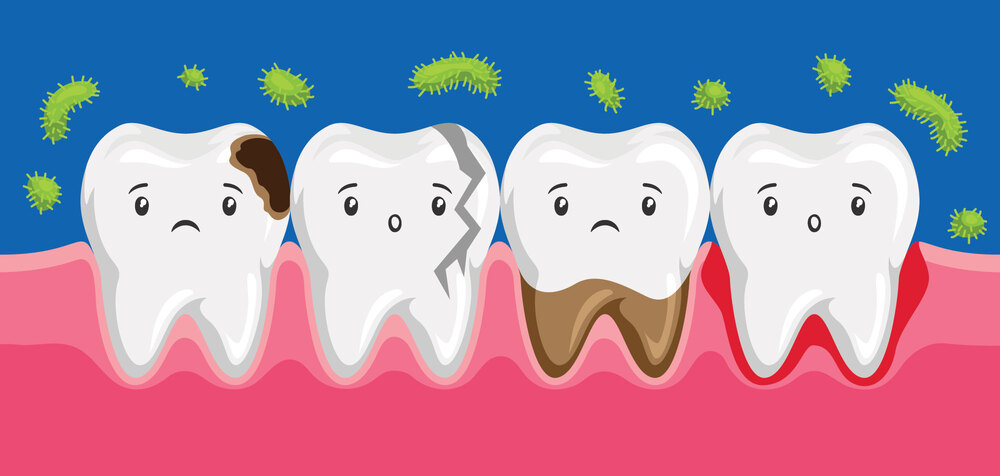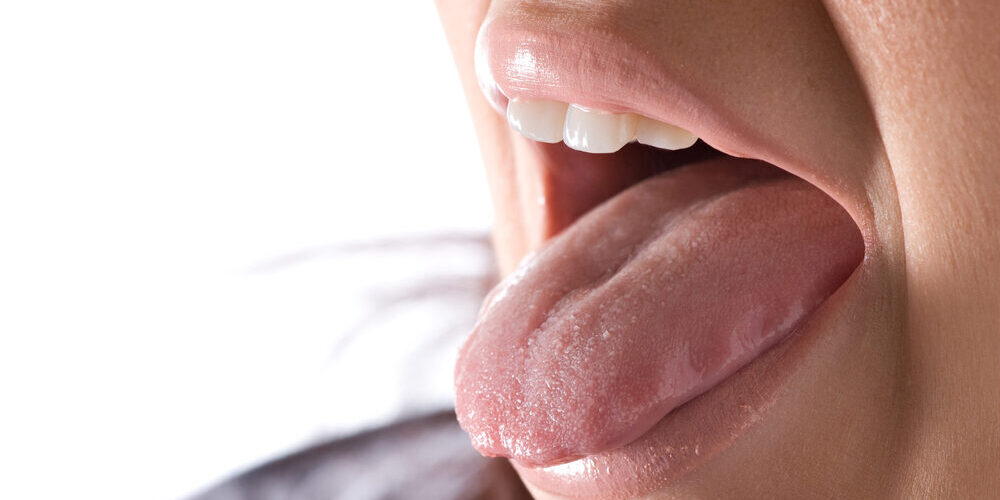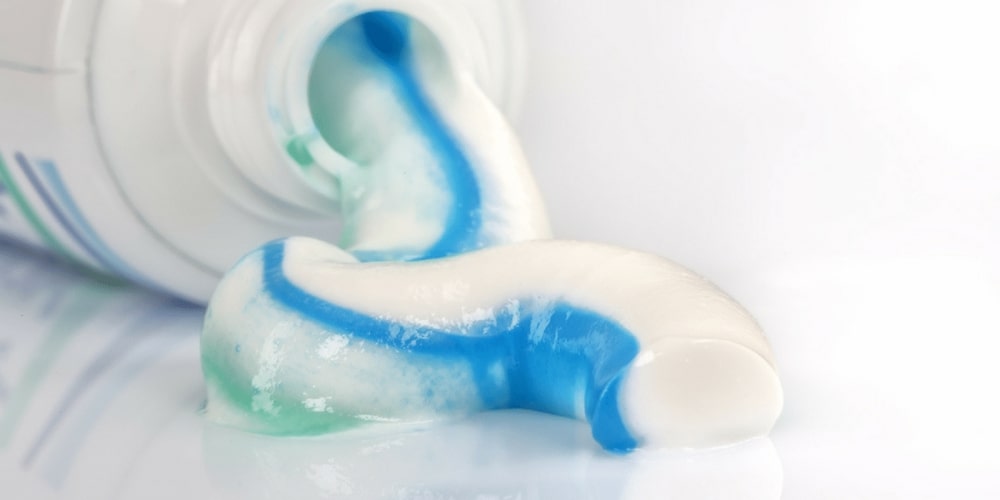
Answered: Why Do I Get Cavities While Others Don’t?
Why Do People Get Cavities At All?
Have you ever wondered, “Why do I get cavities when I brush regularly?” or noticed that some people seem to breeze through dental check-ups without a single cavity? Understanding why this happens starts with knowing what cavities are.
Cavities, also known as dental caries, are damaged areas in the hard surface of your teeth that develop into tiny openings or holes. They arise from a combination of factors including:
- Bacteria in your mouth
- Frequent snacking
- Sipping sugary drinks
- Not cleaning your teeth well
The Role of Genetics and Lifestyle Choices
This article dives deep into the perplexing question: Why do some people get cavities and not others? It’s a mix of genetic luck and lifestyle choices.
Some individuals inherit robust tooth enamel and a powerful immune system that battles cavity-causing bacteria with vigor. Others benefit from a well-aligned dental structure that leaves few places for plaque to hide.
Yet these genetic gifts are only part of the story; factors like diet, oral hygiene habits, and regular dental care play equally important roles in keeping cavities at bay.
By exploring the intricate dance between our genes and our environment, this piece aims to uncover the layers behind cavity development—and how we can tip the scales in favor of a healthier smile.
The Role of Genetics in Cavity Development
Genetics play a pivotal role in shaping our dental health, with influences that extend to the likelihood of developing cavities. This section delves into how genetic factors determine the strength and structure of tooth enamel, which is critical in cavity prevention.
Tooth Enamel Density and Composition
Tooth enamel is the hard, protective outer layer of our teeth. It’s our first defense against cavities, and not all enamel is created equal. Here’s why:
- Genetic Influence on Tooth Enamel: Our genes directly affect the density and composition of our tooth enamel. Like the varying skin tones or eye colors we inherit, so too does enamel exhibit genetic diversity.
- Strength and Structure: Some individuals are genetically blessed with denser and harder tooth enamel. This characteristic equates to a tougher barrier against the bacteria that cause cavities.
- Mineral Makeup: Enamel is composed of minerals, primarily hydroxyapatite. Variations in these mineral compositions can either bolster enamel’s resistance to acid attacks or leave it more susceptible to erosion.
Analyzing Genetic Impact
Researchers continue to explore specific genes associated with tooth development. These studies reveal fascinating insights into how certain genetic markers can predispose individuals to stronger or weaker enamel.
For instance:
- AMELX Gene: One such gene responsible for amelogenin (a crucial protein for developing enamel) exhibits variations that could alter the quality of enamel formation.
- ENAM Gene: Variations in this gene, which plays a role in producing enamelin (another key protein), may influence the final hardness and resilience of the tooth surface.
Real-Life Examples
Consider two people with identical oral hygiene habits but different genetic backgrounds:
- Person A: Has inherited a genetic profile conducive to dense, strong enamel. They might enjoy an extra layer of protection against decay despite consuming an occasional sugary snack.
- Person B: With genes that result in softer enamel may find themselves battling cavities more frequently, even if they are diligent about their diet and brushing routine.
Saliva Quality and Quantity, Shape and Alignment of Teeth, Immune Response to Bacterial Invasion, and Genetic Predisposition to Cavity-Causing Bacteria each contribute significantly to whether one might be more prone to cavities. As we proceed, these factors will be explored further, emphasizing the multifaceted nature of genetics and cavity development.

2. Saliva Quality and Quantity
When it comes to genetics and tooth decay, we need to understand the importance of saliva. Saliva is more than just moisture in the mouth; it plays a crucial role in oral health by containing enzymes and minerals that fight against acid attacks from bacteria. But why do some people have better protection against cavities? The answer lies in our genes.
How Genetics Affect Cavities Through Saliva:
- Amount of Saliva: Our genes have a significant influence on how much saliva our glands produce. Having a higher flow of saliva can effectively wash away food particles and neutralize acids, reducing the risk of cavities.
- Mineral Levels: Saliva is not just water; it also contains important minerals like calcium and phosphate that are needed to strengthen tooth enamel through remineralization. Genetic variations can impact the amount of these minerals present in saliva.
- Enzyme Activity: Saliva contains enzymes that help break down food and fight bacteria. Genes determine the types and strengths of these enzymes, which affects how well saliva can protect enamel from harmful bacteria.
By understanding these subtle yet significant differences in saliva production and composition caused by genetics, we can better grasp how they contribute to a higher susceptibility to cavities. While genetics do play a role, it’s essential to remember that regular dental care is still crucial in managing and reducing these vulnerabilities.
3. Shape and Alignment of Teeth
When it comes to genetics and cavities, the shape and alignment of our teeth are important factors to consider. Here’s how they can contribute to an increased risk of tooth decay:
Tooth Shape
Some people inherit teeth with deep grooves and pits, which naturally trap food particles and bacteria, making it easier for plaque to form.
Tooth Alignment
Genetic factors can also affect how our teeth are aligned, including issues like crowding, spacing, or misalignment (known as malocclusion). These conditions can make it harder to clean between teeth effectively, allowing plaque to build up more easily.
The way our teeth are structured not only affects our appearance but also impacts how easy or difficult it is to maintain good oral hygiene. If there are areas where teeth overlap or gaps between them are too wide, regular brushing and flossing may not be able to reach all surfaces where plaque tends to accumulate.
Plaque Accumulation Tip: When certain areas of your mouth are hard to clean due to tooth positioning, those spots become hotspots for plaque buildup. If left unaddressed, this can lead to the formation of tartar and increase the risk of developing cavities.
Furthermore, understanding how a cavity forms provides additional insight into the consequences of poor oral hygiene. This knowledge highlights the importance of addressing any enamel hypoplasia concerns that may further compromise dental health.
Another genetic factor that can impact oral health is having a scalloped tongue. This condition, often caused by improper alignment between the teeth and tongue, can contribute to plaque buildup and increase the risk of cavities.
Understanding the genetic influences on tooth shape, alignment, enamel quality, and tongue condition empowers individuals to adapt their dental care routines accordingly. By being aware of these specific vulnerabilities, personalized preventive strategies can be developed to minimize the chances of cavities forming.
4. Immune Response to Bacterial Invasion and Genetics
When it comes to genetics and tooth decay, it’s crucial to understand how our immune system plays a role. Our genes not only affect the structure of our teeth but also influence how our body defends against harmful bacteria. This genetic influence on cavities goes beyond just physical traits and can impact an individual’s susceptibility to dental caries.
The Role of Genetics in Immune System Defense
Genes play a critical part in shaping our immune response, potentially altering an individual’s susceptibility to dental caries:
- Genes determine the effectiveness of various components of the immune system, such as:
- The production of antibodies
- The function of immune cells
- The release of proteins that neutralize pathogens
- Some individuals inherit gene variations that prime their immune system for a stronger or quicker response to oral bacteria, reducing their risk of developing cavities.
How a Strong Immune System Fights Cavity-Causing Bacteria
The mouth is home to a complex ecosystem of bacteria, some beneficial and others that can cause decay. A robust immune system can prevent these harmful bacteria from gaining a foothold, thus protecting against cavities.
Personalized Dental Care Strategies Based on Genetic Understanding
Understanding how genetics can contribute to an increased risk of cavities underscores the importance of personalized dental care strategies:
- While we cannot change our genetics, recognizing our unique genetic makeup can lead to tailored approaches in oral healthcare, which may include specific preventive measures or treatments.
- This knowledge can help individuals with higher susceptibility take extra precautions or seek early interventions.
Exploring the connection between genetics and oral health reveals another fascinating aspect: how our genes may make us more likely to harbor certain types of bacteria in our mouths compared to others. This topic deserves attention as we further investigate the genetic factors influencing oral health.
5. Genetic Predisposition to Cavity-Causing Bacteria
To understand how genetics can affect cavity formation, we need to first look at its impact on the oral microbiome, which is the collection of bacteria in our mouths. Recent dental research has revealed that our genetic makeup can make us more prone to certain types of bacteria, including those that cause cavities.
The oral microbiome consists of various bacterial species, some of which are beneficial while others can be harmful and contribute to the development of cavities.
How Genetics Influence the Oral Microbiome
Some people are born with more aggressive strains of cavity-causing bacteria. Studies suggest that this may be due to genetic factors that create an environment in the mouth where these harmful bacteria can thrive.
In other words, if your genetics predispose you to an imbalanced oral microbiome, you may have a higher risk of getting cavities. Certain genes can cause an overgrowth of harmful bacteria, which then produce acids that damage tooth enamel.
The Role of Genetics in Tooth Enamel Erosion
Understanding the connection between genetics and tooth enamel erosion caused by bacterial growth highlights the fact that not everyone has complete control over their susceptibility to cavities.
It’s important to note, though, that even with these genetic influences, they don’t determine your dental health entirely. There are still many other factors involved in cavity development. While we’ll discuss these additional factors in detail later on, it’s crucial to recognize that:
Your genes alone do not determine whether or not you will have cavities.
Despite having genetic predispositions, there are steps you can take to maintain good oral hygiene and reduce your risk of cavities.
Other Contributing Factors to Consider
While genetics play a significant role in determining susceptibility to cavities, it’s essential not to overlook the impact of environmental and lifestyle factors. Fluoride exposure, diet, dental hygiene habits, and regular dental visits all contribute significantly to oral health, and they’re variables you can control.

1. The Impact of Fluoride Exposure on Cavity Prevention
Fluoride is a mineral well-known for its capacity to strengthen tooth enamel, making it more resistant to acid attacks – a primary cause of cavities. It also assists in remineralization, a process that repairs the early stages of tooth decay.
How does fluoride exposure happen?
There are several ways:
- Fluoridated water: Many communities have fluoride added to their drinking water as a public health measure to reduce cavities.
- Fluoride toothpaste: Most toothpastes on the market contain fluoride. Brushing twice a day with fluoride toothpaste can significantly enhance your teeth’s resistance to decay.
- Professional fluoride treatments: Available at your dentist’s office, these treatments provide a higher concentration of fluoride and can be an excellent preventative measure, especially for those at high risk of cavities.
Getting enough fluoride is an attainable goal for most people and can make a marked difference in maintaining strong, healthy teeth.
It’s important to note that while beneficial in appropriate amounts, excessive fluoride exposure can lead to dental fluorosis—a condition which causes discoloration or pitting on the tooth surface. This is typically only a concern during early childhood when permanent teeth are still forming under the gums.
Stay tune for the next section! We will discuss how diet and nutritional choices impact your oral health.
2. The Role of Diet and Nutritional Choices
When we talk about the things that can cause cavities, what you eat is one of the biggest factors. Your diet doesn’t just affect your dental health directly, it also works together with your genes to determine how likely you are to get cavities. Here’s why your eating habits matter:
- Sugar Intake: Eating foods that are high in sugar gives the bacteria in your mouth more fuel to cause cavities. These bacteria create acids that wear away at your tooth enamel and lead to cavities.
- Acidic Foods and Drinks: Some things like citrus fruits, soda, and even certain sports drinks can be very acidic. When your teeth are exposed to acid on a regular basis, it can slowly break down the enamel and make them more prone to decay.
- Eating Right for Strong Teeth: To keep your tooth enamel strong, it’s important to have a diet that’s rich in calcium and phosphorus. Foods like dairy products, leafy greens, and nuts are great sources of these nutrients and they help keep your teeth healthy.
- The Benefits of Fiber: Foods that are high in fiber make you produce more saliva, which is really good for your teeth. Saliva helps get rid of acids in your mouth and it also helps repair any damage to your enamel before a cavity can start.
While using fluoride toothpaste and having good oral hygiene habits are crucial for preventing cavities, it’s just as important to make healthy choices in your daily life. By being mindful of what you eat, you can create an environment in your mouth that’s less friendly to cavity-causing bacteria and make your teeth stronger overall.
Understanding how both outside factors and genetics play a role in cavity development can empower you to take better care of your oral health. By making smart decisions about what you eat, you can significantly lower your chances of getting cavities.
3. Importance of Dental Hygiene Habits
Good oral hygiene practices are crucial in preventing cavities. They are one of the main ways to keep cavities at bay, along with a healthy diet and regular dental check-ups. Taking a strategic approach to brushing and flossing can make a big difference in keeping your mouth healthy.
- Brushing: Make it a habit to brush your teeth at least twice a day using fluoride toothpaste. Fluoride is important for dental health because it helps strengthen tooth enamel and protect against acid attacks from plaque bacteria.
- Flossing: Don’t forget to floss every day to remove plaque and food particles from places that your toothbrush can’t reach. This is especially important in preventing cavities because plaque buildup is a major cause of tooth decay.
- Mouthwash: Using an antibacterial or fluoride mouth rinse can provide an extra layer of defense against cavity-causing bacteria.
Remember, it’s not just about going through the motions when it comes to these cavity prevention habits; how you do them matters too. Use gentle circular motions with a soft-bristled brush when brushing, and follow proper flossing techniques to clean effectively without harming your gums.
While genetics can influence your chances of getting cavities, there are other factors that you have control over. By exposing yourself to fluoride and taking good care of your oral health, you can take proactive steps towards preventing cavities regardless of your genetic predisposition.
4. Regular Dental Visits for Early Detection
Professional dental examinations are a critical aspect of maintaining optimal oral health. During these visits, dentists use their expertise to detect cavities and other dental issues early, often before patients notice any symptoms. This early detection is key to preventing significant damage that can lead to more complex and costly treatments.
Benefits of Regular Dental Visits:
- Early Identification of Cavities: Dentists can spot the signs of tooth decay that aren’t visible to the naked eye using specialized tools and techniques. X-rays, for instance, can reveal cavities developing between teeth or under existing fillings.
- Tailored Fluoride Treatments: In-office fluoride treatments are more concentrated than what’s found in toothpaste or water supply. These treatments can significantly bolster tooth enamel, making it a formidable opponent against acid attacks.
- Customized Oral Hygiene Advice: Dental professionals provide personalized advice based on individual oral health conditions. They may recommend specific products or routines tailored to address unique concerns related to environmental factors in cavity development.
- Assessment of Lifestyle Factors: During check-ups, discussions about diet, oral hygiene habits, and other lifestyle factors for preventing cavities take place. This dialogue serves as an opportunity to reinforce good practices or make adjustments where necessary.
Consistent dental check-ups are not just about cleanings; they’re an investment in the long-term health of one’s teeth and gums. These visits play a pivotal role in the battle against cavity formation by combining professional intervention with education on environmental influences and lifestyle choices that impact dental health.
Prevention is always better than cure when it comes to dental decay. Scheduling regular dental appointments is a proactive measure in safeguarding one’s smile against the onset of cavities and other oral health issues.
Final Thoughts
The journey through the complexities of cavity development shows that both genes and the environment play a role. This understanding leads to an important realization: genetics alone don’t determine the fate of your dental health. Even if you’re more prone to cavities, you still have control over your oral well-being through daily choices and proactive steps.
Here are some key points to remember:
- Genetic influences do affect our oral health, but they’re only part of the picture.
- Maintaining good oral hygiene habits, like brushing with fluoride toothpaste and flossing regularly, is crucial in preventing cavities.
- Eating a balanced diet that’s low in sugars and rich in essential nutrients helps strengthen your teeth from the inside.
- Seeking professional dental care ensures early identification and treatment of any potential problems.
Every action you take to care for your oral health reduces the risk of developing cavities. Here’s what you can do to take control:
- Schedule regular dental checkups
- Follow a comprehensive daily dental care routine
- Make informed decisions about your diet to promote stronger teeth
Whether your genes make it easier for you or not, prioritizing oral hygiene remains crucial. Preventing cavities is possible; it starts with making a commitment to prioritize the health of your mouth.
Ready to improve your dental health? Contact us today to schedule your next appointment and discover effective strategies for keeping cavities away, once and for all.
